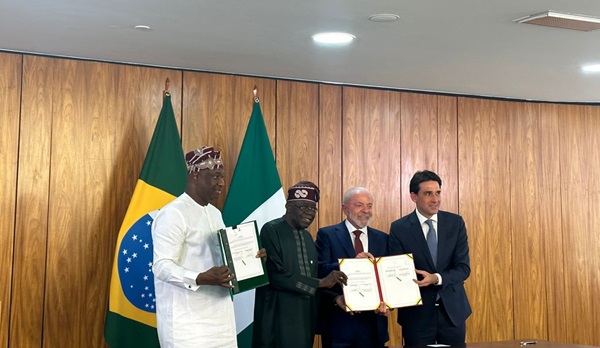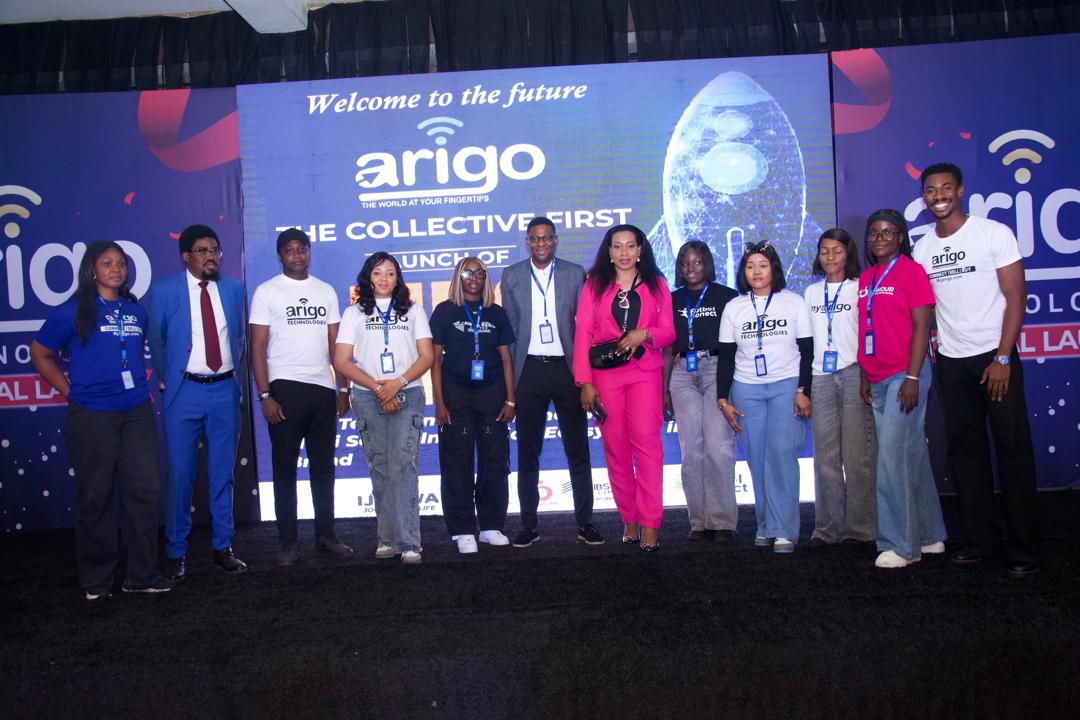Nigeria and Brazil have signed a groundbreaking Memorandum of Understanding (MoU) on science, technology, and innovation aimed at strengthening bilateral ties, boosting job creation, and stimulating industrial growth across both nations.
The agreement, signed on August 26, underscores the growing importance of cross-continental collaboration in tackling the challenges of economic diversification, technological advancement, and youth unemployment.
The MoU focuses on fostering cooperation in cutting-edge areas such as biotechnology, renewable energy, digital transformation, and industrial research. Both countries see this pact as a strategic step towards reducing overdependence on traditional sectors while unlocking new opportunities in emerging industries.
Officials highlighted that the partnership would also enhance knowledge transfer between Nigerian and Brazilian institutions, strengthening local capacity in scientific research and applied innovation.
A Boost for the Digital Economy
For Africa’s largest economy, this development is particularly timely. Nigeria’s heavy reliance on oil revenue has long been a stumbling block in efforts to diversify the economy. The new pact with Brazil introduces fresh pathways to strengthen non-oil sectors by leveraging science and technology as engines of growth.
Analysts note that with Nigeria’s youthful population—largely digital-savvy yet underemployed—the agreement could catalyze job creation if properly implemented. Opportunities may arise in tech-enabled manufacturing, agritech, and clean energy solutions, sectors that can absorb skilled graduates and reduce the growing unemployment gap.
Brazil, Latin America’s largest economy, is equally invested in expanding its global partnerships. By engaging with Nigeria, Brazil gains a strategic entry into Africa’s growing digital economy and manufacturing sector. The collaboration also provides Brazil with a chance to share expertise in agricultural technology, an area where it has global recognition, while tapping into Nigeria’s large consumer market.
The MoU also reflects Brazil’s intent to reposition itself as a global player in South-South cooperation, extending its influence beyond Latin America into Africa’s fast-evolving economies.
Why it Matters
Beyond traditional industries, the pact emphasizes science and digital innovation as critical drivers of growth. Stakeholders suggest that digital ecosystems built around this collaboration could fuel startup development, facilitate tech hubs, and create cross-border platforms for innovation.
If executed effectively, the Nigeria-Brazil partnership could serve as a model for similar bilateral agreements across Africa, positioning Nigeria not just as a participant but as a leader in shaping the continent’s digital future.
Experts caution, however, that translating MoUs into tangible results often requires strong political will and consistent investment. Without clear frameworks for accountability, past agreements have faltered. This latest pact will be closely watched to see if Nigeria can move beyond policy rhetoric to actionable results.
For Nigeria and Brazil, this agreement represents more than a diplomatic handshake. It is a call to action for both nations to turn shared visions into measurable progress. For tech enthusiasts and investors, it signals fresh opportunities to engage with Africa’s largest market in new and innovative ways.
Talking Points
This Nigeria–Brazil agreement sounds promising, but Africa has a history of signing “big MoUs” that rarely translate into real impact. While Brazil may walk away with strategic entry into Africa’s digital economy, Nigeria risks being left with another glossy press release if it fails to execute. Africans should be asking: how many MoUs have we signed in the past decade, and how many created jobs?
Nigeria’s youthful population is digital-savvy, yet most of the infrastructure powering Africa’s digital economy is foreign-owned. If this pact doesn’t prioritize local ownership of platforms, patents, and intellectual property, it may simply reinforce dependency.
Tech partnerships without safeguards often mean Africa provides the market, while foreign partners take the value.
Brazil is smart. By partnering with Nigeria, it accesses a huge consumer base, testing grounds for agri-tech, and a gateway into West Africa.
The question is whether Nigeria will negotiate from a place of strength or settle for being the “buyer” of technology instead of a “builder.” Without tough negotiation, this partnership could tilt heavily in Brazil’s favor.





